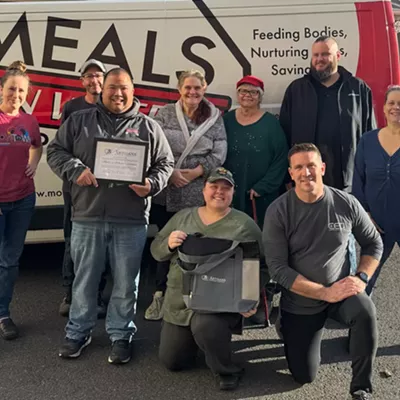During the last 150 years, the world has experienced five influenza pandemics, which have varied greatly in their severity. One of the hallmarks of these pandemics is that most people do not have a preexisting immunity to the new flu strain, so more people become infected, more people are hospitalized and more deaths occur than with the seasonal flu. When so many people get sick, there can be serious ramifications on our health care, school and business sectors. Predicting the severity of a pandemic is impossible. That’s why public health officials take pandemics so seriously.
Swine flu, now called novel, or pandemic, H1N1 influenza, is a new strain of flu that, since it was discovered in Mexico this spring, has spread throughout the United States and most of the world. The World Health Organization (WHO) declared H1N1 a pandemic flu strain because the new flu strain has spread from person-to-person in many parts of the world. In Spokane, we had our first case in May, and we’ve had sporadic cases since then.
Like the seasonal flu, illness with the swine flu virus has ranged from mild to severe, and the symptoms are similar: fever, cough, sore throat, runny or stuffy nose, body aches, headache, chills and fatigue. Most people who have been sick with swine flu have recovered without medical treatment, but over 500 U.S. deaths have occurred. Pregnancy and other medical conditions — such as asthma, chronic obstructive pulmonary disease (COPD), diabetes, suppressed immune systems, heart disease and kidney disease — appear to be linked to an increased risk of complications from swine flu and seasonal flu. However, unlike the seasonal flu, H1N1 has caused more illness in people younger than 25 than in older people, with very few cases or deaths in people over 64 years old.
It is difficult to forecast what will happen in the upcoming flu season. Because most people lack immunity to swine flu, it has the potential to spread more widely and quickly in our community. The consequences of not aggressively trying to combat this virus could be substantial.
As kids head back to school, the virus may pick up speed, as it appears to spread easily among children. This has the potential to affect many families because children with flu-like symptoms will need to be kept home so that they do not infect others. Parents should begin making plans now about caring for sick children who are sent home from school or childcare. Making sure you have extra food, household supplies and medicines will make it easier for you if you do need to stay home.
Businesses should take the swine flu seriously, too, as employees could become ill or may have to take care of sick children. Employers need effective sick leave policies that allow workers the time they need to stay home, fully recover and prevent further spread of the virus.
The very best defense against the flu — for both swine flu and seasonal flu — is to get vaccinated. This year there will be two vaccines: one for seasonal flu and one for swine flu. Because there will be two flu vaccines with different recommendations, it may get a bit confusing. You can find out more about the vaccines on our Website (www.srhd.org).
To avoid the flu, you should also pay special attention to frequent hand washing, covering your cough with your sleeve not your hands and making sure that if you do get sick you don’t infect others. Recognize the symptoms of the flu (fever, cough, sore throat, runny or stuffy nose, body aches, headache, chills and fatigue) and stay home, except to get medical care, until your fever has been lower than 100 without the use of a fever-reducing medicine for 24 hours.
Most cases of the flu can be managed at home, but if you have difficulty breathing, confusion or notice a bluish tint to your skin or lips, seek emergency medical care.
The bottom line: Flu season is here, and the risk is real. Protect yourself and your family by getting immunized against the flu. It’s a safe, effective and healthy choice to make. If you’ve ever suffered through a week or two of the flu, taken care of a child with the flu or had a loved one die from flu complications, you know it’s not worth the risk.
MAKE SURE THAT...
…if you have kids in school, you are prepared to keep them home when they have flu symptoms: fever, cough, runny/stuffy nose, body aches, chills, fatigue. (And if you have those symptoms, you need to stay home, too.)
…you wash your hands frequently.
…when you cough, do it into your sleeve, not your hands.
…you get vaccinated for both seasonal flu and, if you can, for H1N1.
For more, check out www.srhd.org















